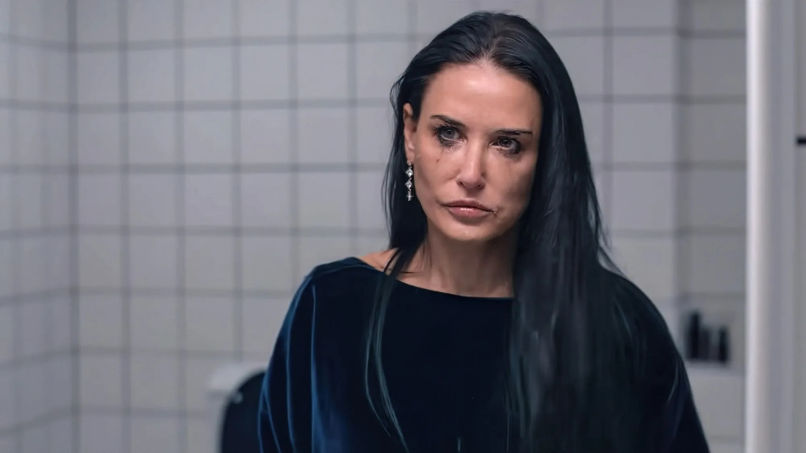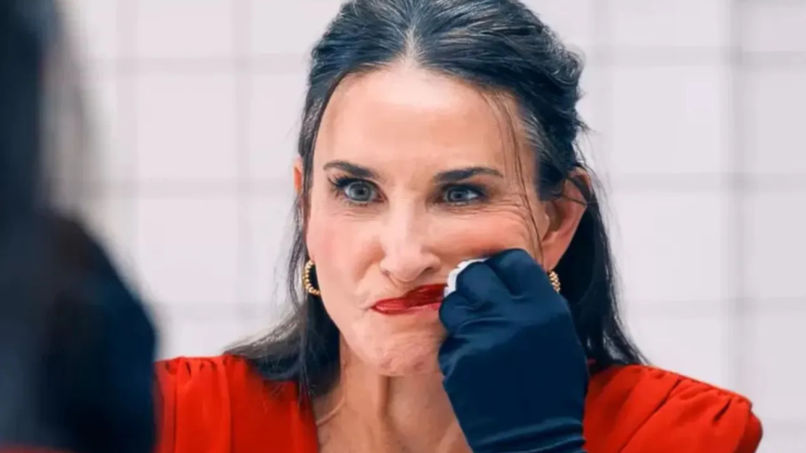“Beauty begins the moment you decide to be yourself.” — Coco Chanel

Movies have always served as a mirror to society. From epic tales of historic battles to intimate stories unfolding within the walls of a home, films have consistently captured society’s most honest and often harsh realities. Much of this reflection is shaped by how movies portray their female characters. There was a time when actresses were relegated to secondary roles—they weren’t driving the plot, yet they drove audiences to the theaters. Over time, narratives evolved, and while there is an undeniable shift in the portrayal of women, the deep-seated issues remain far from resolved.
One such issue is the relentless, unrealistic standard of beauty that women and only women are subjected to every single day of their lives. They are expected to have perfect waist lines, perky breasts, tight asses —all while they fight for equal rights, birth children and at this point, try and run the world. I’ve lost count of the times I’ve been told that I won’t be taken seriously if I don’t fit a particular mold. How can others take you seriously if you don’t first meet an impossible standard yourself? Because, apparently, a woman only deserves respect if she can slip into sample-size outfits and keep her calorie deficit in the thousands. In the world of glamour, these standards reach another level. Female leads are cast as mothers to men older than them because, heaven forbid, a single wrinkle appears on their face by the time they’re thirty-five.
This is the haunting specter of one of this year’s most unnerving horror films, The Substance.
Demi Moore—an icon who redefines beauty and grace with every passing year—takes on the role of Elizabeth Sparkles, a washed-up TV star tormented by severe body dysmorphia. She is undeniably stunning, yet, as she nears 50, the show’s vile, callous director bluntly declares, “At 50, it stops.” Despite her fame and success, what she craves is the impossible beauty society demands of her. It’s a chilling reminder that, for women, beauty is often seen not as a gift but as a brutal, unrelenting expectation.

Battling her own reflection, Elizabeth stumbles upon a mysterious drug from the dark web, a substance that promises to enhance one’s appearance upon consumption. But as the audience, you sense the sinister fine print lurking behind this miraculous offer. With each twist, the horror unravels, revealing the true cost of beauty in ways far darker than she could have imagined. The deeper she dives, the more she realizes this isn’t just a transformation—it’s a descent into something far more horrifying.
Elizabeth’s younger self, Sue—brought to life in a haunting performance by Margaret Qualley—quickly becomes addicted to this newfound admiration. Validation, after all, is all she’s ever craved. But every gift comes at a cost, and this one demands balance. Initially, the price is patience and time, but as her vanity spirals into greed, that cost escalates. With each dose, the line between fantasy and nightmare blurs, as the lurking doom edges closer.

The Substance is a sharp, unflinching critique of a society that demands perfection from women, enforcing it through impossible standards. In a culture where the hush-hush overconsumption of drugs like Ozempic and Wegovy is quietly accepted, those who champion natural ageing and authentic beauty seem to be fighting a losing battle. This film exposes the hidden, grotesque cost of chasing societal ideals—turning our obsession with youth and flawlessness into a chilling, unforgettable horror.

Yet the horror here has no clear end. While the film gruesomely conveys that self-love and acceptance are the only true exorcisms against society’s beauty ideals, it also reminds us that this pill is harder to swallow than the fat burners perched on our bathroom shelves. The Substance veers into fantasy with an exaggerated, monstrous twist in its climax, yet the reality persists: validation remains the one thing many will seek, believing it to be the only way to feel truly “good enough.” It’s a darkly compelling portrayal of how the need for external approval continues to haunt us, long after the credits roll.












